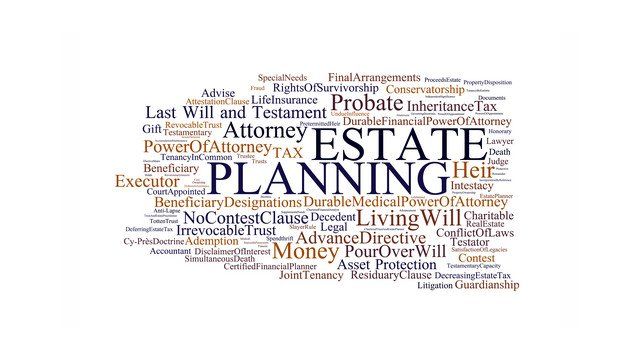The Future of 1031 Exchanges? A 721 UPREIT may be the answer.
Once again, the 1031 Exchange is on the chopping block. Joe Biden has announced that he may get rid of this tax policy that allows owners of rental properties to defer their capital gains when selling a property and reinvesting the proceeds into a new "like-kind" property within a certain period.
This is not the first time the 1031 Exchange was at risk. In 2017, Trump was looking at repealing the 1031 Exchange in the Tax Cuts and Jobs Act. Although the tax reform ultimately spared the 1031 Exchange for investment properties, private property, such as art, airplanes, collectibles, etc., was no longer eligible 1031 Exchanges.
Even though I believe the 1031 Exchange will stay, many of my clients are concerned and want to know their options to plan for this potential change in the tax code.
For those investors that are uncertain about the future of 1031 Exchanges and would like to sell their appreciated asset without paying any capital gains, a 1031 Exchange into a DST with a 721 UPREIT may be a potential option.
What is a DST?
The Delaware Statutory Trust (DST) is a legal entity created and often used in real estate investing that allows multiple investors to pull money together and hold fractional interests in the trust's holdings and assets. Typically, a sponsor organizes a DST by acquiring an institutional-quality property, putting a management team in place, organizing financing, and providing investors with a turn-key investment in a professionally managed property. For more information on DSTs, more information can be found here .
What is a 721 UPREIT?
A DST's typical exit strategy is to sell the property and distribute the proceeds to the investors. However, some sponsors allow investors to elect to roll their proceeds into a REIT through a 721 UPREIT (Umbrella Partnership Real Estate Investment Trust).
A pure 721 Exchange transaction would involve a direct contribution of the investor's real property into the operating partnership in exchange for an interest in the operating partnership. This usually never happens because the REIT managers are generally not interested in most real estate an investor has to offer. As such, most 1031 Exchange investors need to follow a two-step process.
The first step is to sell the relinquished property and structure a 1031 Exchange into fractional ownership institutional-quality real estate, such as a DST. This step completes the 1031 Exchange portion of the transaction.
The second step is for the sponsor to contribute the fractional interest into the operating partnership after a holding period for a certain period, which varies from sponsor to sponsor via a 721 Exchange (tax-deferred contribution into a partnership). As a result, the investor receives an interest in the operating partnership in exchange for his or her contribution of the real estate and is now effectively part of the REIT.
The above description is oversimplified but should give readers the general idea of how a 721 UPREIT may be utilized. Below is an overview of some of the pros and cons of this strategy:
Pros:
• Suitable for investors worried about the future of 1031 Exchanges and want to defer their capital gains taxes.
• Potential diversification once the DST is converted into a UPREIT and added into the REIT Portfolio, which typically has other properties.
• Potentially more liquid, since the investor can sell their shares to the sponsor who purchases at the market price.
Cons:
• Since the investor's share in the property is part of a REIT, they can no longer 1031 Exchange out of the UPREIT into other "like-kind" real estate.
• A sale of their interest in a UPREIT will result in a taxable event, including the recognition of previously deferred capital gain and any depreciation recapture.
Are you interested in learning more? I specialize in helping my clients identify and select DSTs suitable for their risk tolerance and time horizon. If you are interested in learning more about DST investment opportunities, I'd like to invite you to set an appointment or attend our next webinar. You can do so by calling me at 650-282-0477 or by sending an email to amit@get1031properties.com.
This is for informational purposed only and does not constitute an offer to buy or sell any securitized real estate investments. There are material risks associated with investing in DST properties and real estate securities including liquidity, tenant vacancies, general market conditions and competition, lack of operating history, interest rate risks, the risk of new supply coming to market and softening rental rates, general risks of owning/operating commercial and multifamily properties, short term leases associated with multi-family properties, financing risks, potential adverse tax consequences, general economic risks, development risks, long hold periods, and potential loss of the entire investment principal. Diversification does not guarantee a profit or protect against a loss in a declining market. It is a method used to help manage investment risk.Potential cash flows/returns/appreciation are not guaranteed and could be lower than anticipated. Because investors situations and objectives vary this information is not intended to indicate suitability for any particular investor. This information is not meant to be interpreted as tax or legal advice. Please speak with your legal and tax advisors for guidance regarding your particular situation.
Securities offered through Concorde Investment Services, LLC (CIS), member FINRA/SIPC. Get1031Properties is independent of CIS.
Download Your FREE Listings of 1031 Exchange DST Properties & Information Kit Today!
Contact Us












